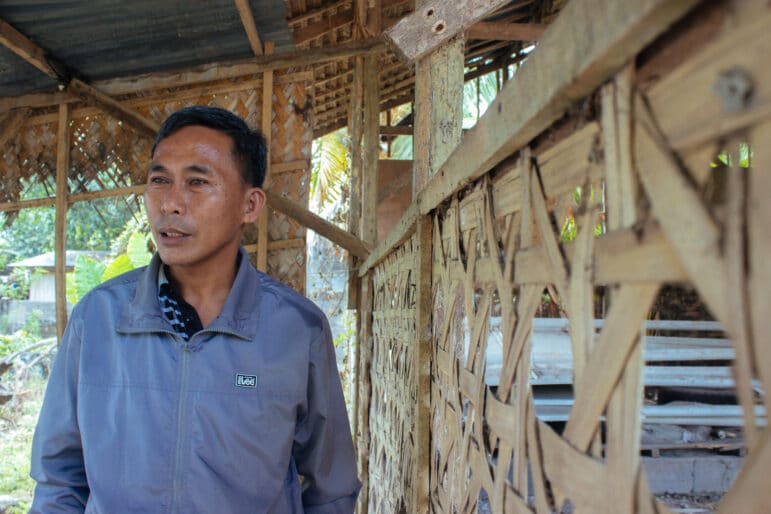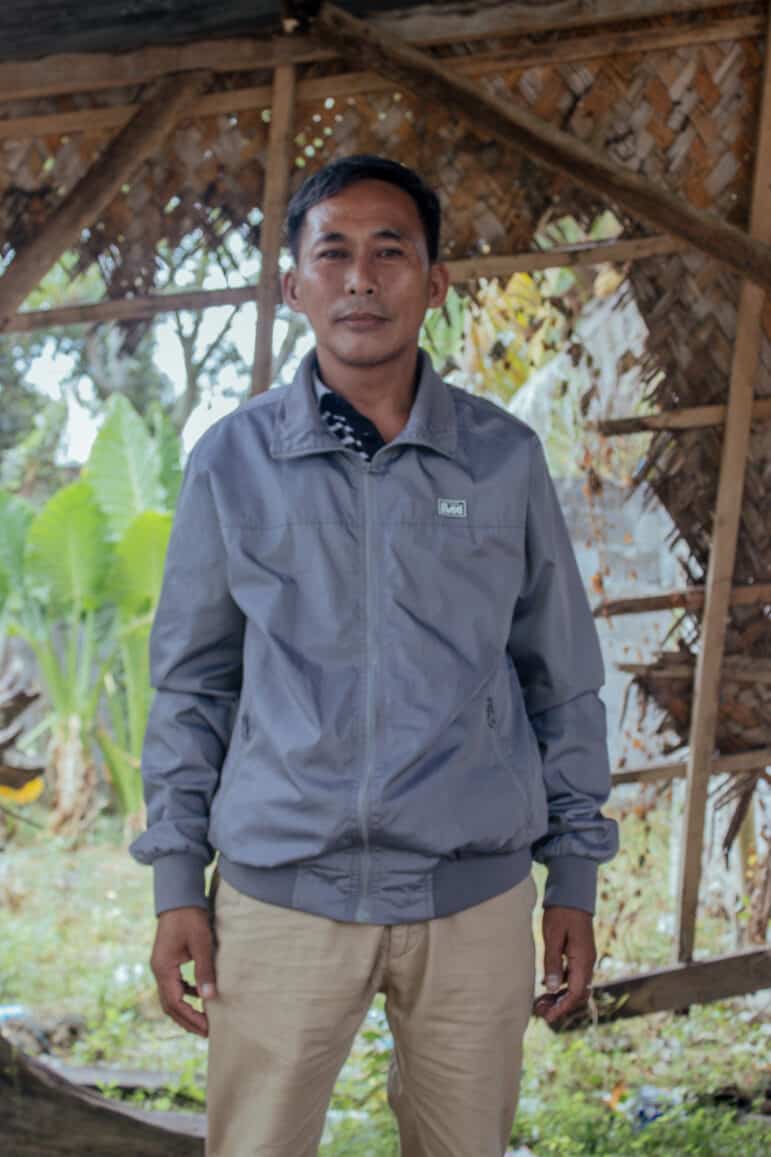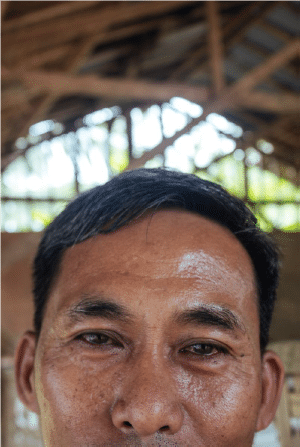In peacebuilding, everyone is invited
In the middle of a long-standing conflict in Datu Saudi-Ampatuan, Maguindanao, Philippines, Abe Salipada was able to step up and help his community.
By Denise Rafaeli Cadorniga

Through NP, Abe Salipada, a 49 year old farmer from the Philippines, learned about Unarmed Civilian Protection and Early Warning, Early Response. These skills allowed him to better serve his community and protect his neighbors from violent conflict.
One such event necessitated Abe to employ what he learned in these trainings. In November 2019, a conflict erupted between the Moro Islamic Liberation Front (MILF) and the Armed Forces of the Philippines (AFP) in Sitio Bayog, Dapiawan, Datu Saudi-Ampatuan, Maguindanao — forcing civilians to flee their homes for safety. But when food supplies at the evacuation center started running low, displaced families were left with no choice but to return to their homes to gather crops. Unaware that combatants were still present in the area, they were caught in the crossfire.
When the situation called for action, Abe was one of the civilians who stepped up to help. Through the skills he learned through NP, Abe was able to help his neighbors out of the conflict area safely. As a leader, he imparts,
“Parang isang pamilya lang kami sa evacuation center.”
“We are like just one family in the evacuation center.”
Abe was born during martial law time in the Philippines, and remarks on how things have changed.
“Hanggang ngayon may gera pa rin. Mula noon, hanggang ngayon. Pero ngayon may normalization na. Wala kang masandigan, malapitan, magtulong sayo. Pero ngayon sa panahon na manageable na ang mga situation ngayon, may malapitan ka.”
“Even to this day there is still conflict. Since then, and to this day. But now there is normalization.There was no one you could approach, to turn to for help. Now in this time where situations can be more manageable, you can get the support you need.”
Across the conflict area, support has come from organizations advocating for peace through international and local monitoring teams. In Abe's area, NP was the organization to show up.
He recalls the time when NP first arrived in his area. It was during a time of conflict, and though initially civilians and combatants alike were unsure of NP’s purpose and intent, it was quickly established among all parties that NP aims to assist in the monitoring of the government and rebel group peace process and the current Bangsamoro normalization.
“Sila ang naging gabay namin—ang Nonviolent Peaceforce."
“They became our guide—Nonviolent Peaceforce.”
In navigating through the long-standing conflict in his area, Abe recounts how the NP is able to help civilians by being a reliable partner and ally.
“Kahit anong problema ay nandyan ang NP na naging partner namin. Sila ang nag-momonitor sa amin, kami ang nagsasabi sa ground na ito yung pangyayari sa civilian, ‘pag may naipit, o shortage ng pagkain. So nalaman ng mga tao na ang NP ay talagang nagmomonitor ng civilian at saka kakampi ng civilian ‘yun.”
“NP has become our partner. They are they for any kind of problems. They monitor the situation, and we report from the ground—if there are people caught in conflict, or there is food shortage… This is how the people have come to understand that NP is an ally to the civilians.”
Thinking what else needs to be done for the community, Abe muses,
“Paano ma rehabilitate yung utak ng mga tao… Ipakita sa mga tao na ang pinakamagandang solusyon sa lahat ng problema ay peace through negotiation. Hindi yan gamitan ng dahas... Peace na pag-iisip, peace na pamumuhay, sabayin natin ang training at kabuhayan. Kung wala talagang matinong pagiisip yung mga tao hindi successful ang project.”
“How to rehabilitate the minds of the people… We need to show them that the best solution to all problems is peace through negotiation, not force… A peaceful manner of thinking, a peaceful manner of living, coupled with training and a source of livelihood that reinforce these. If the people do not share the same mindset, the project will not be a success.”
As Abe puts it, normalization has been a long-standing dialogue, and there is still much to talk about. However the challenges, he maintains his committment to the vision of peace. In peacebuilding, he encourages and affirms, “Everyone is invited.”
***
Abe is one of the training participants of the ATTAIN Project funded by EU in partnership with Nonviolent Peaceforce. ATTAIN or Accompanying the Transition, Transformation of Conflict, and Advocacy on Social Cohesion in the normalization of Bangsamoro is being implemented in BARMM, Regions 9, 10 and 12 to complement the civilian protection component of confidence-building and security measures under the normalization and opportunity to broaden the practice of unarmed strategies in conflict transformation and social cohesion to a wider geographical scope in Mindanao.


